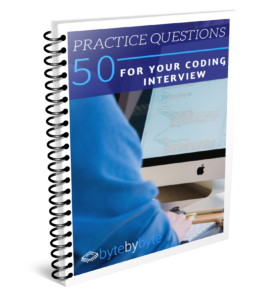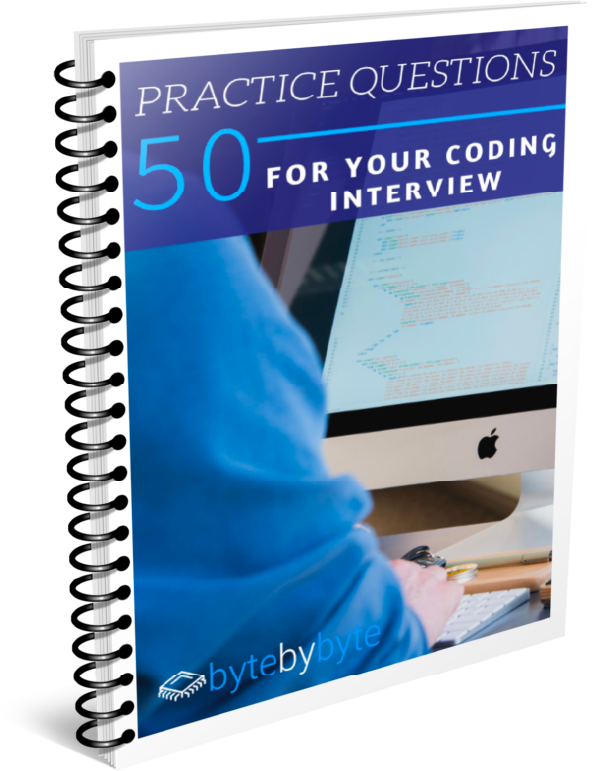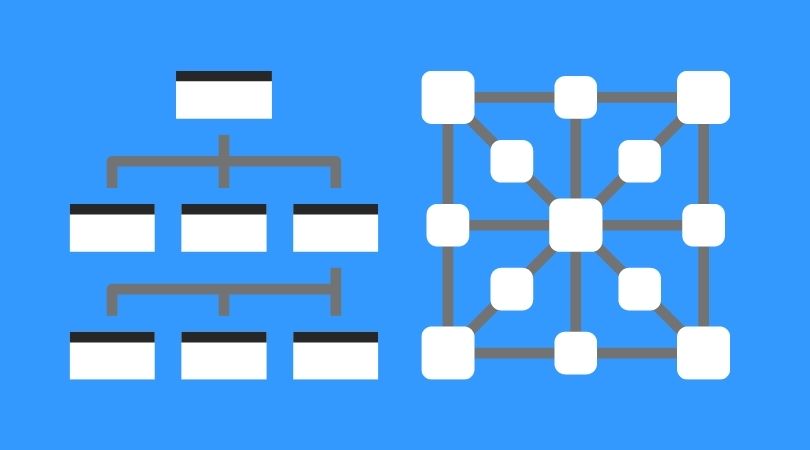Whether you've spent the last several months preparing for you coding interviews or a company emailed you out of the blue saying “hey we'd like you to interview next week,” there will come a time in your coding interview prep where you'll be down to the wire.
A time when you start wondering whether you've studied enough.
A time when it's so easy to start panicking.
A time when you just want to call off the whole thing.
But if you make it through that, glory waits on the other side. You just have to do the right things to prepare.
In this post, I'll break down exactly what you should do in the week leading up to your coding interview so that you know you've done everything that you can to be successful.
Not all coding interview prep is created equal
There are two very different versions of “last minute” interview prep that depend wholly on what you've been doing prior to this point. If you've already been spending weeks or months studying, then you'll follow a very different path from someone new to the coding interview prep game who had an interview dropped in their lap out of the blue.
Let's break down each one, because what you should do will be totally different.
You've already been studying for your interview and now it's almost here
Hopefully, if you've followed Byte by Byte for any length of time, you're in this first category. This is exactly why I always promote consistent preparation, since it's going to be way easier to do last minute interview prep if you've already been studying.
When you're in this situation, the key is to dial in what you've already been doing.
You're not trying to learn anything brand new at this point. We're not trying to learn how new algorithms or data structures work. You're just trying to make sure that we are as solid as possible in the things that we've already been preparing.
Therefore, I recommend doing 3 different things:
Review any specific topics that you feel iffy on
If you've been doing interview prep for a while, you've probably covered a lot of ground. There may be things that you studied weeks or months ago that you don't quite remember how they work.
There might be coding interview problems that you nailed last month and now you just look at them kinda confused.
The first thing that I recommend doing is going back and reviewing. You're not trying to learn anything new here, just make sure that your memory is fresh with the things that you studied a while ago. This could involve solving an interview question again that you haven't done in a while. It should definitely involve going through any data structures or algorithms that you are still at all unsure on.
I highly recommend focusing on practice rather than “studying”. Don't just read about the thing, actually do it. Solve the interview problem. Implement the data structure. This is what is going to really get it to stick.
Do research on the company and try to understand what to expect
At this point, you've been practicing general strategies and hopefully have a framework that you're going to follow once you're in your interview. I generally don't recommend spending lots of time on company-specific interview prep, but now is the time to bring some of that into your process.
Do some research on the company. What are they looking for in the role? What did the job description say?
Go on Glassdoor and see what sorts of interview experiences other people had. Are there any specific topics that keep coming up again and again?
Does the company have specific leadership principles like Amazon or do they do some unique type of interview?
This is the time to figure out so that you can be fully prepared.
Do mock interviews
Hopefully you've already been doing this to build up your confidence in the interview process, but whether you have or not, doing mock interviews is one of the best ways to make sure that you're confident in your interview and don't have your mind go completely blank when you walk in the door.
I highly recommend scheduling at least 2 mock interviews in the week leading up to your interview. These will get you comfortable with the interviewing environment and process so that you can go into your interview with confidence.
For doing mock interviews, I recommend Interviewing.io and Pramp.com.
If you spend the week leading up to your interview doing these things, you will give yourself the absolute best shot of success.
Will you feel 100% confident going into your interview? Probably not. There's always going to be more you can do. But remember, you don't have to do everything perfectly, you just have to do it well enough.
Don't do another coding interview…
…Until you've mastered these 50 questions!

You haven't been studying for interviews and now you only have 1 week to prepare
Let me be honest: You don't want to put yourself in this situation if you can at all avoid it.
Bluntly, it's unlikely there's anything you can do in one week that's going to dramatically change the outcome of your interview.
That's why my first and most important recommendation here is: Ask if you can push your interview back and create a plan so that you don't end up in this situation again.
Most companies, especially larger ones, are very flexible with interview scheduling. You just have to ask. Usually a single friendly email asking for a bit more time (I recommend being specific) is all you need. Once you've pushed your interview back, it's critical to make a SPECIFIC action plan for yourself so that you don't end up in this situation again.
Let's assume for whatever reason, though, that you can't push your interview back and you only have a week to prepare. You don't want to just sit around bemoaning your fate, there is still stuff that you can do.
Here's what I would recommend focusing on:
Data Structures & Algorithms
Honestly, these are foundational to everything that we do in coding interviews. Trying to do a coding interview without having your data structures and algorithms down would be like trying to play a game of basketball without knowing how to dribble. No amount of strategy is going to help you when you can't move the ball down the court.
Since you don't have a lot of time here, you need to be very focused in your approach. You definitely don't have time to study everything so you want to focus on the few things that are going to give you the most bang for their buck. I'd focus on the following: Trees, Graphs, Recursion, and Strings & Arrays.
Obviously this isn't everything, but you don't have a lot of time here, so I'd spend the first 2 days of my 1 week on these and really getting them dialed in.
Problem solving strategy
With your core DS & Algos down, you should turn your attention to learning problem solving strategy. One of the best ways to be successful in your interviews is to be strategic in the way that you approach interview problems.
Most people just stare at a problem and hope that they magically see the solution. That's not a strategy.
If you have a consistent process for solving any problem, then it doesn't matter what they ask you in your interview because you'll always be prepared. This is exactly what I teach inside our course, 6 Weeks to Interview Ready.
Mock interviews
Same as before, mock interviews are going to be key for building up that comfort level in the interviewing environment.
Honestly, these are probably going to be a real challenge, since you haven't been preparing for your interviews. However, they're absolutely essential for building up your confidence.
Even if they don't go well, they will help you get more comfortable in the interviewing environment. Having mock interviews that go poorly will help you mentally in your actual interview because it'll be clear how failure is not such a big deal. Having the right mindset in your interview could be the difference between failure and success.
Again I recommend Interviewing.io and Pramp.com for doing mock interviews.
Wrapping Up
No matter what you do to prepare for your interviews, no matter how much time you spend studying, there will come a time where your interview is imminently coming up. How you handle that time and make the most of it can make a huge difference.
If you follow the steps I shared above, you will set yourself up in the best possible position to be successful in your interviews.




